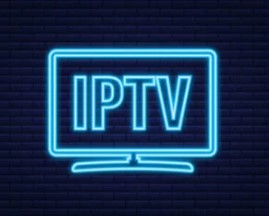Is Watching IPTV Legal? 10 Questions Answered

In the age of digital streaming, television content has shifted dramatically from cable and satellite delivery to more versatile internet-based options. One of the most prominent advancements is IPTV—or Internet Protocol Television—which enables users to stream live channels and on-demand content directly over broadband networks. With global adoption soaring and user interest peaking, a pressing question looms: Is watching IPTV legal?
The answer isn’t as straightforward as a simple yes or no. The legality of watching IPTV depends on several nuanced factors, including content licensing, regional laws, the nature of the service provider, and the viewer’s own usage behavior. This article tackles ten critical questions to help viewers understand the legal landscape and make informed choices before watching IPTV.
1. What Is IPTV, and How Does It Work?
IPTV delivers television content using the internet rather than traditional broadcast or cable signals. Rather than receiving channels through satellite dishes or fiber-optic lines, viewers can stream programs via apps on smart TVs, mobile devices, or dedicated IPTV boxes.
Types of IPTV Services:
- Live IPTV: Real-time streaming of television channels.
- Video on Demand (VOD): Access to a library of movies, series, or documentaries.
- Time-Shifted Media: Catch-up TV allowing playback of previously aired programs.
Watching IPTV offers greater control and convenience, but the legality depends on how content is sourced and delivered to the viewer.
2. Is All IPTV Content Legal to Watch?
No, not all IPTV content is legally distributed. The legality hinges on whether the provider has obtained the proper broadcasting rights from the content owners. IPTV platforms that stream copyrighted television shows or movies without authorization are illegal—even if they’re accessed by viewers for personal use.
Legal IPTV Platforms:
- Services that have licensing agreements with broadcasters or content creators.
- Platforms backed by telecom providers or media companies (e.g., AT&T TV, Sling TV, Hulu Live).
Illegal IPTV Platforms:
- Services offering paid or free access to premium content without proper licensing.
- “Grey market” providers that obscure their source of content and server location.
Watching IPTV from authorized platforms is fully legal. Using services that pirate streams—even unknowingly—can have legal repercussions.
3. What Are the Risks of Using Unlicensed IPTV Services?
While unlicensed IPTV may appear tempting due to its low cost or broader channel offerings, it exposes users to various risks—legal, technical, and financial.
Legal Consequences:
- Civil lawsuits for copyright infringement.
- Fines imposed by regulatory bodies in your country.
- IP logging and prosecution if authorities monitor illegal streaming platforms.
Technical and Security Risks:
- Malware embedded in IPTV apps or websites.
- Exposure of personal data to third-party trackers or hackers.
- Sudden shutdown of services, leading to loss of subscription payments.
Watching IPTV from disreputable sources can carry real-world consequences beyond disrupted streaming.
4. Does Watching IPTV Make Viewers Liable or Just the Providers?
This is a key distinction in legal enforcement. While IPTV providers are primarily responsible for distributing unauthorized content, viewers can be implicated depending on jurisdiction.
Jurisdictional Differences:
- Strict Liability Regions: Some countries penalize end-users for accessing pirated streams.
- Lenient Enforcement Areas: Others focus enforcement on distributors, not individual viewers.
- Grey Zones: Regions where no specific laws address IPTV usage directly.
In 2025, legal frameworks are evolving to include end-user accountability, especially in cases of repeated or commercial-level access to illegal IPTV.
5. How Can Viewers Identify Legal IPTV Services?
With many providers offering similar services, identifying which ones are legitimate requires due diligence.
Checklist for Verifying Legality:
- Is the provider registered and operating transparently?
- Are content rights clearly stated in service terms and conditions?
- Does the platform partner with reputable content producers or broadcasters?
- Are payment methods secure and industry-standard (e.g., PayPal, credit card)?
Watching IPTV through vetted providers reduces the risk of legal exposure and ensures better stream stability and customer support.
6. Are Free IPTV Services Always Illegal?
Not necessarily. Some IPTV platforms offer free content legally, such as public domain shows, educational content, or promotional broadcasts.
Legal Free IPTV Sources:
- Government-funded broadcasting apps or websites.
- Independent creators who stream original content.
- Platforms offering limited access with monetization via advertising.
Free does not automatically mean illegal—but viewers watching IPTV for premium content at no cost should be skeptical and confirm source legitimacy.
7. Does Using a VPN Make Watching IPTV Legal?
A Virtual Private Network (VPN) encrypts data and masks your IP address, often used to bypass geographic content restrictions. However, it does not make illegal streaming legal.
What a VPN Does:
- Protects privacy by hiding internet activity.
- Circumvents geo-blocks to access region-locked services.
What a VPN Doesn’t Do:
- Exempt users from copyright laws.
- Legitimize content streamed from unauthorized platforms.
Watching IPTV legally requires using authorized providers—VPNs only help secure the connection or unlock regional access to licensed content.
8. What Is the Legal Status of IPTV in Different Countries?
Regulatory approaches to IPTV vary worldwide. Understanding local laws is essential before watching IPTV in a new region.
Legal Overview by Region:
- United States: Authorized IPTV providers operate legally under FCC guidelines; unauthorized providers are aggressively prosecuted.
- European Union: Strict regulations under EU Copyright Directive; both providers and users face legal risks.
- United Kingdom: Streaming copyrighted content without a license is illegal; enforcement includes fines and service blockages.
- Canada: Emphasis on intellectual property rights; IPTV platforms must obtain broadcasting licenses.
- Asia-Pacific: Varied regulations; some nations aggressively block unauthorized IPTV domains.
Global enforcement has intensified since 2023, and watching IPTV in 2025 now requires awareness of regional compliance.
9. Can IPTV Subscriptions Be Shut Down Without Warning?
Yes. Unauthorized IPTV services are frequently shut down due to copyright enforcement, technical failures, or fraud investigations.
Shutdown Scenarios:
- Law enforcement raids dismantling server farms.
- Domain seizures rendering platforms inaccessible.
- Internal collapses due to financial mismanagement.
When watching IPTV via unauthorized sources, users risk losing access without refunds or recourse. Legal platforms offer more stability and support.
10. What Should Users Do Before Subscribing to an IPTV Service?
Before watching IPTV or investing in a subscription, users should conduct thorough research to avoid legal issues and disappointment.
Actionable Steps:
- Review service legitimacy by checking for broadcasting licenses.
- Consult user reviews and industry watchdogs.
- Verify customer service accessibility and refund policies.
- Assess technical stability—buffering, channel uptime, and player compatibility.
Watching IPTV becomes safer and more enjoyable when consumers are informed and selective. Vigilant research ensures that users receive value without crossing legal boundaries.
Conclusion: Legal IPTV Starts With Informed Viewing
IPTV represents the future of television, offering flexibility, personalization, and global reach. However, watching IPTV legally in 2025 requires a firm grasp of licensing, regulation, and ethical content consumption. The questions answered above serve as a practical guide to help users navigate the increasingly complex streaming environment.
Legal streaming isn’t just about compliance—it’s about supporting creators, protecting privacy, and securing long-term access to quality entertainment. Whether you’re seeking live sports, news, documentaries, or global cinema, watching IPTV legally guarantees peace of mind and uninterrupted enjoyment.

